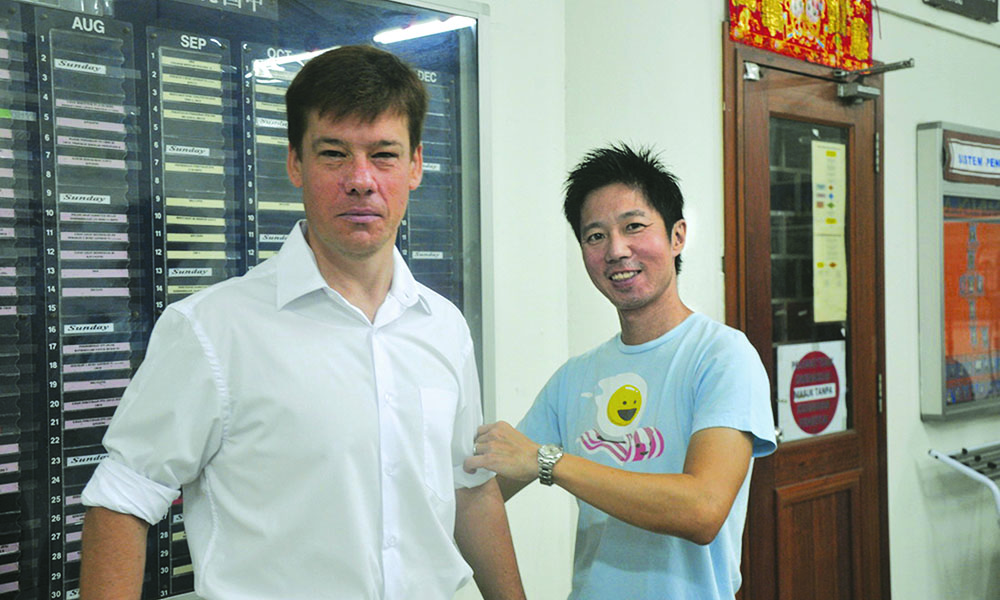By Liu Ru
Shibusawa felt that the problem was that higher education workers were not willing to take up lower education jobs. While this desire is understandable and reasonable, one’s demands may not always fit with reality and the limitations of job supply.
The father of Japan’s capitalist economy is Shibusawa Eiichi (涩泽荣一) (1840-1931), a highly respected Japanese industrialist. Guided by his study of Confucius’ Analects, Shibusawa brought Western capitalism to Japan, but with a core emphasis on morality and business ethics.
In this series, we look at Shibusawa’s philosophy and understanding of Confucius’ teachings, which guided the creation of Japan’s modern economy. This week, we examine Shibusawa’s perspective on the glut of degree-holders and why they can’t find jobs.
The Glut of University Graduates
Every year, a new wave of university graduates enters the Japanese workforce, but many struggle to find jobs in a system that has an oversupply of university graduates. Many end up in jobs that do not require a degree, while others struggle with unemployment and burnout.
This phenomenon occurs not just in Japan, but in many developed countries. Why are we producing far more degree-holders than the economy requires? What’s the root cause of the problem?
Shibusawa had actually foreseen and addressed this problem in his book, the Analects and the Abacus. If the younger generation can understand his rationale early on in their education, they will save themselves a lot of heartbreak by diversifying into different career paths and maximise their talents in the economy.
The Root Problem
In the Analects and the Abacus, Shibusawa discusses the problem under the chapter, “The Major Reason Behind the Talent Oversupply”. He begins by explaining the economics of supply and demand, which also applies to the overabundance of high-qualified workers in the economy.
Shibusawa felt that the problem was that higher education workers were not willing to take up lower education jobs. While this desire is understandable and reasonable, one’s demands may not always fit with reality and the limitations of job supply.
Society requires all types of vocations to function, and it needs more than just higher-education workers. It needs talents from various social strata. But the reality is that there are limited few leadership positions in the economy.
If everyone refuses to do lower level jobs because they feel it is beneath their higher level education, this leads to the problem of too many elites competing for a small number of high-skilled jobs. Therefore, if society continues to produce large numbers of highly educated workers, it goes without saying that these workers will face immense competition when they graduate.
The Problem With Modern Education System
In addition, Shibusawa felt that modern higher education was not truly of high standards. The current education system focuses on feeding students with technical knowledge, thereby producing graduates who are technically proficient but spiritually impoverished. They are arrogant, full of complaints, and do not know humility. As such, they feel lower education jobs are beneath them.
This is the result of neglecting the moral aspect of the education curriculum. As such, the oversupply of highly educated workers is inevitable.
Another reason is that these graduates have sacrificed many years and dollars to complete their university education. This makes it even harder for them to lower themselves and take up jobs below their qualifications.
Graduates who struggle to find jobs ultimately feel jaded and conflicted. If they had known earlier that they would wind up working in a position that did not require a degree, what was the point of struggling so hard to graduate from university? One cannot blame them for feeling despondent. Therefore, there is really a need to re-examine our education policies.
Comparing to the Ancient Education System
Shibusawa contrasts the modern education system to the Edo-period terakoya, the private educational institutions that taught writing and reading to the children of Japanese commoners. Because public education was reserved for samurai and nobility, the common people acquired their learning through other means like the terakoya.
While the terakoya did not provide a systematic form of education, they were beneficial in instilling moral values and tailoring the subjects to each student’s abilities. This not only meant teaching the same content using different methods, but also teaching specific skills to each student according to their strengths and interests, and guiding the student to a suitable career path based on their abilities.
Shibusawa adds that ancient education methods were very simple and taught using generic texts like the Four Books and Five Classics of Confucianism. However, they still produced talents of various fields and social strata.
Shibusawa explained that students in ancient times were free to exert their individual strengths. Those who were more academically inclined or enjoyed deep thinking would pursue a certain career path, while others who were more practical and hands-on (and knew that they were not academically inclined) would pursue another career path.
Why are we producing far more degree-holders than the economy requires? What’s the root cause of the problem?
Although the modern education system gives everyone the chance to receive an education, its focus is incorrect (emphasising technical knowledge and neglecting moral education). Therefore, students are unclear of their own strengths and weaknesses, nor do they care if their career aspirations are suitable. They believe that everyone becomes a high-level employee or official, without considering the real situation and their individual strengths.
Living According to One’s Lifestyle and Values
No two people are the same—we come from different backgrounds have different strengths and characters, and are suited for different careers. Yet many of us blindly continue in the rat race, vying to climb to the top. And when we don’t make it, we become depressed and view ourselves as failures.
The current education system focuses on feeding students with technical knowledge, thereby producing graduates who are technically proficient but spiritually impoverished.
Our modern education system neglects moral values and character building, influencing people to blindly pursue top career positions without considering one’s strengths, interests, and the realities of society. This is the real reason for the oversupply of graduates and difficulties in finding jobs.
Therefore, from an early stage, one should take a step back and consider one’s strengths and interests before deciding on a suitable career. There is no need to distinguish careers by class, as any job that is beneficial to society is valuable and honourable.
Our modern education system neglects moral values and character building, influencing people to blindly pursue top career positions without considering one’s strengths, interests, and the realities of society.
You will only feel content when you live life according to your own style, tapping on your innate strengths and talents. It is really not necessary to go through the pain of not being able to find a job.

Source: Wikipedia
















